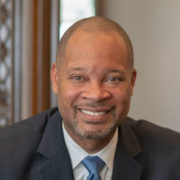Attorney General Aaron Ford: Combatting Opioid Overdoses in Nevada
In response to a rise in fatal and nonfatal overdoses associated with fentanyl, this week, alongside the Nevada Department of Health and Human Services and Governor Steve Sisolak, NewDEAL Leader Attorney General Aaron Ford announced the launch of a new opioid task force. The recent increase in overdoses in Nevada has been severe, with emergency department visits from suspected stimulant-related overdoses having risen by 66% between July and August alone. The new group, named the Joint Advisory Task Force, is designed to provide technical assistance, guidance and resources to local and state jurisdictions, and will work to reduce the risk of overdose and better prepare local and state officials if overdose numbers continue to rise. For more, check out this article on the task force.










